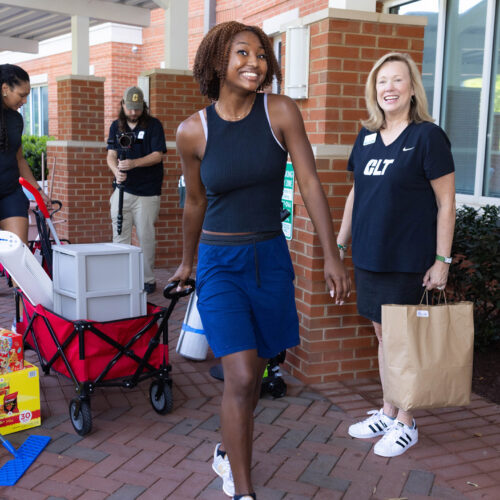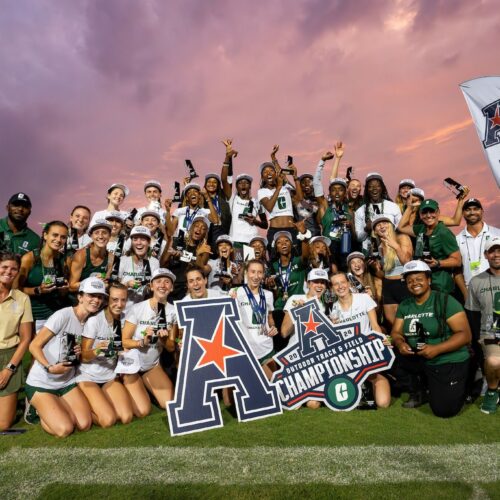NinerAlerts notify the campus community of emergencies, incidents, or inclement weather that may impact safety and operations. Families can stay informed by signing up for NinerAlerts via email or opting in to receive text messages.
Keeping Families Connected
As your student embarks on their journey at Charlotte, know that they’re joining a community of independent thinkers and driven achievers. Our 49ers are more than just students—they’re future leaders. We share your commitment to their success and are dedicated to supporting them every step of the way.
Affording College
We're here to help you understand how to pay for college without getting overwhelmed by cost. There are options that make your student's education manageable.
Welcome to the Niner Nation family!
At UNC Charlotte, family members are vital to our community. We offer valuable programs and services to help you support your student’s success and engagement. When you’re informed and connected, your student thrives, and together we strengthen their 49er experience.

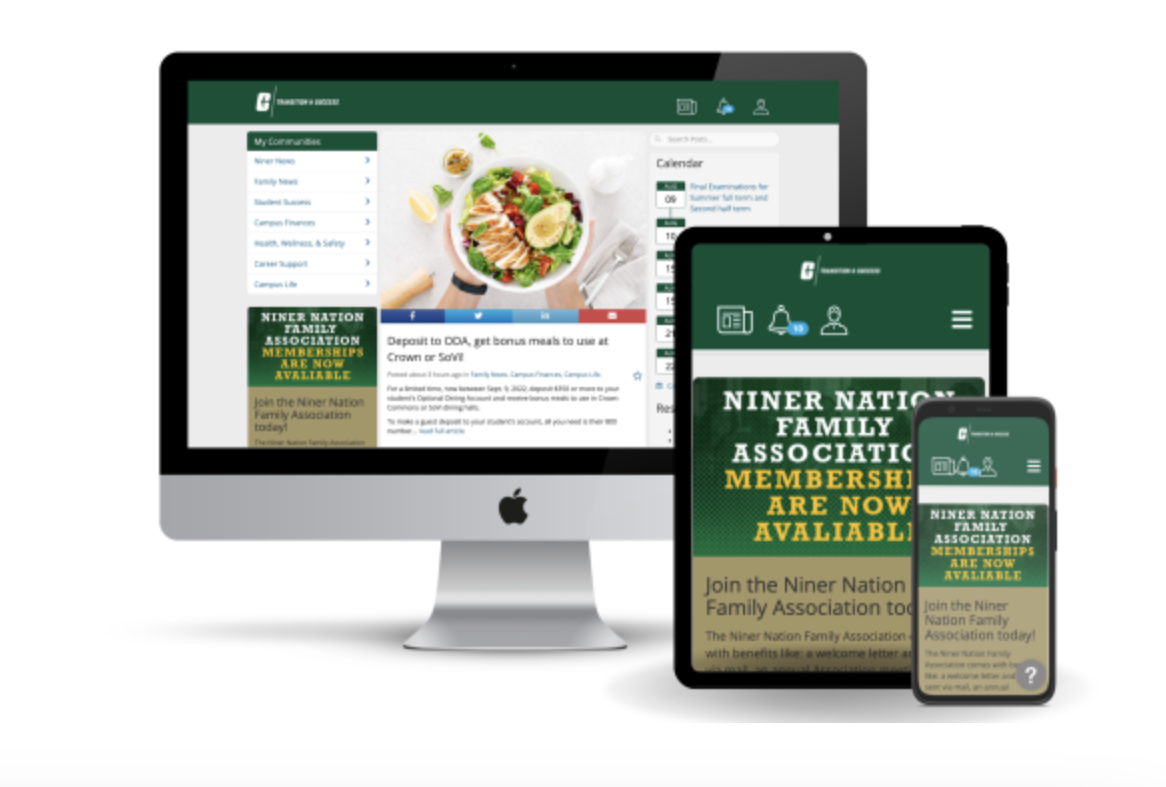

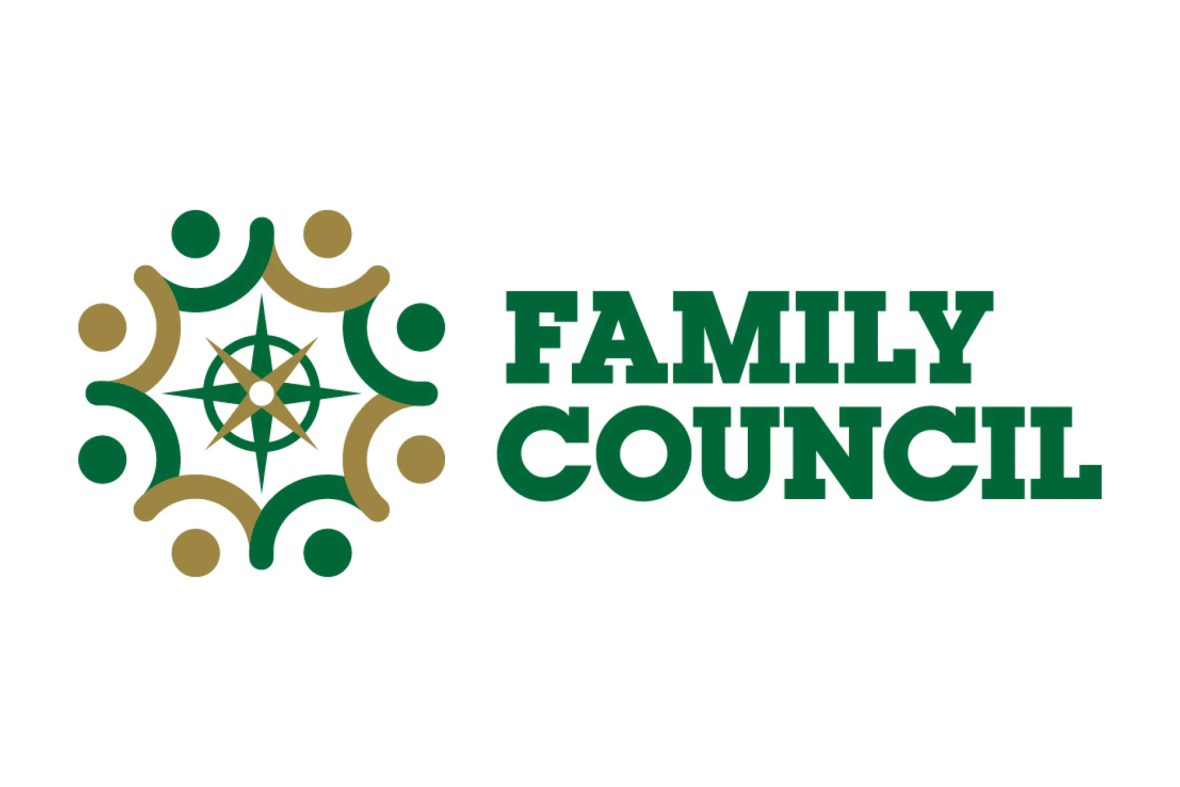
See Our Students Shine
Prepare Your Student for College Life
It’s vital for your student to know they have a strong support system at home when taking this significant step forward at UNC Charlotte. Here are some of the ways we’ve seen parents support their students to ensure they have a positive experience.
Starting College Life Off Right
Our studies show that students who live and work on campus (less than 20 hours per week) and get involved in campus clubs and organizations have a significant advantage. Connecting with the university community and finding balance is key to academic success. Remember, a 15-hour course load requires about 45 hours of class and study time each week. As family members, your role in guiding, advising, and encouraging your student is crucial to their success.
Understanding the Academic Shift from High School to College
College expectations are significantly higher than in high school. Professors expect students to be fully prepared for class by thoroughly reviewing all assigned materials. The general rule is two hours of preparation for every hour in class—college is a full-time commitment. As someone with valuable life experience, whether through college, parenting, or a career, you can help your student understand the importance of diligence and preparation.
Communicating with Faculty
Encourage your student to take the lead in communicating with university faculty and staff, fostering independence and responsibility in their academic relationships. They should know which department to contact if an issue arises and feel confident asking for help. While it’s natural to want to step in, empowering your student to handle their own challenges will build their self-reliance. Show your confidence in their ability to manage their own affairs, but also remind them that seeking help when needed is a sign of strength.
Staying Connected
Maintaining an active relationship with your student is key to supporting their college journey. Whether you’re across the country or just across town, it’s helpful to establish how and when you’ll stay in touch. Discuss options like email, phone calls, or letters, and agree on a frequency that works for both of you.
While visiting campus is a great way to stay connected, avoid surprise visits. Let your student guide you on the best times to visit, ensuring it doesn’t interfere with their academic schedule. Planning your visit around campus events like the international festival, a basketball game, or a theatre performance can make the experience even more special.
Care packages are always a hit! Whether you send a favorite snack or a few essentials from home, your thoughtfulness will be appreciated. Even simple items like soap, a new toothbrush, or a couple of snacks can make your student’s day.
Navigating Roommate Relationships
If your student is used to having their own bedroom at home, sharing a space with a roommate can be a new experience. Help them understand the importance of respecting their roommate’s personal space, property, and unique differences. Encourage effective communication and the ability to set ground rules together. Knowing how to address issues and seek help if needed will be key to building a positive living environment.
Managing Money and Finances
For many new college students, managing day-to-day expenses is a new responsibility. Once on campus, they’ll need money for essentials like notebooks, snacks, personal items, and recreation. UNC Charlotte offers convenient access to several bank ATMs on campus, so choosing a bank that’s accessible for both students and family members is a good idea.
College is the perfect time for students to gain financial independence. Encourage your student to practice working within a budget, balancing a checkbook, and paying their own bills. They can also take advantage of Niner Finances—a valuable resource on campus that offers guidance on essential financial skills.
Taking Charge of Health Appointments and Prescriptions
Before your student arrives on campus, review their health history together and provide them with all necessary health insurance information. Encourage your student to start making their own health appointments in the time leading up to college. Developing a sense of personal responsibility and ownership over their health needs will empower them to manage their well-being confidently.
Holistic Health & Well-Being Resources
Family members are a vital part of our community, and we’re committed to providing the resources, programs, and support your student needs to succeed. The Transition & Success Initiatives office, led by a dedicated team, offers targeted communications, events, and resources to keep you informed and engaged—because when families are involved, students thrive.
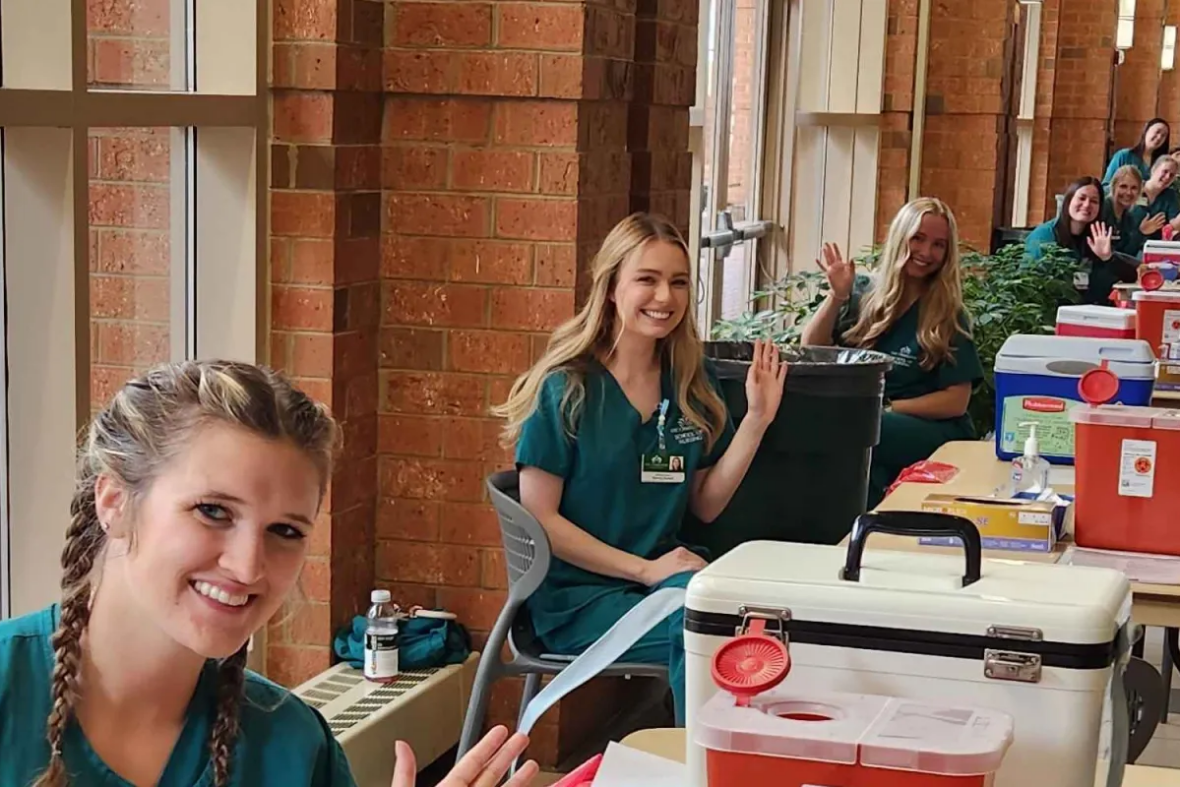
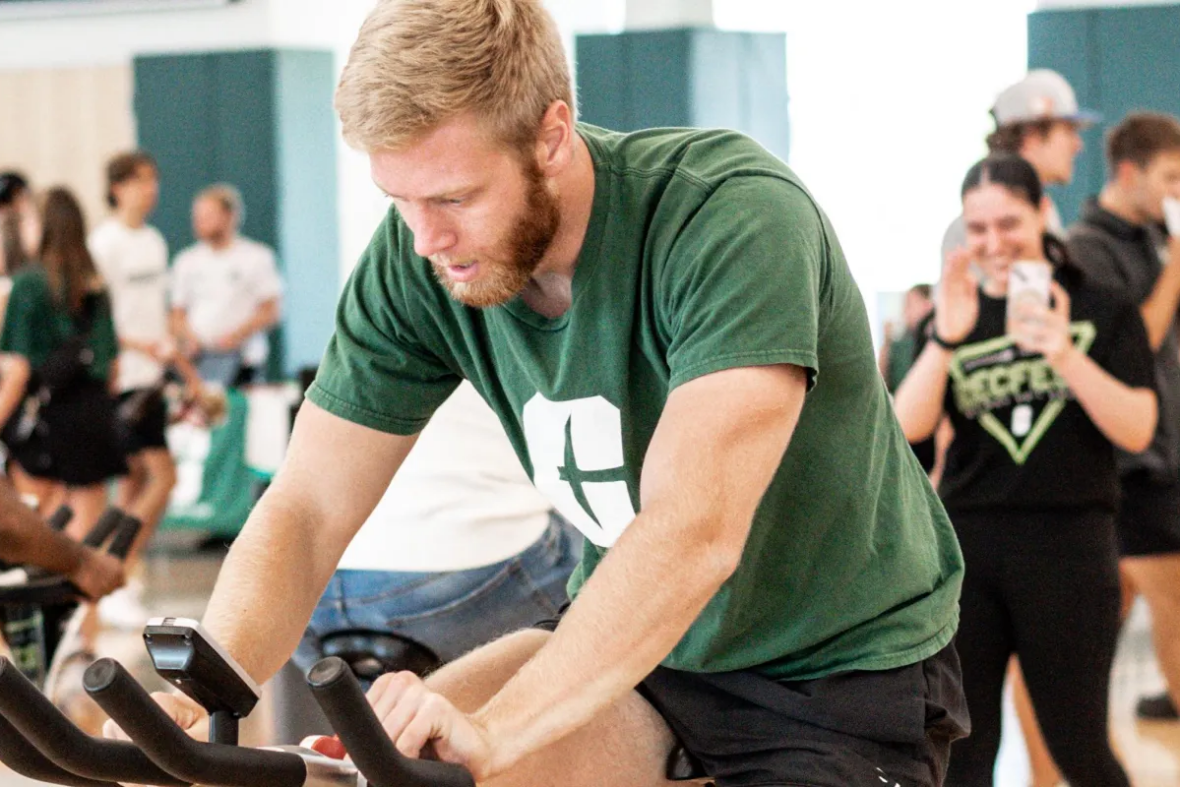
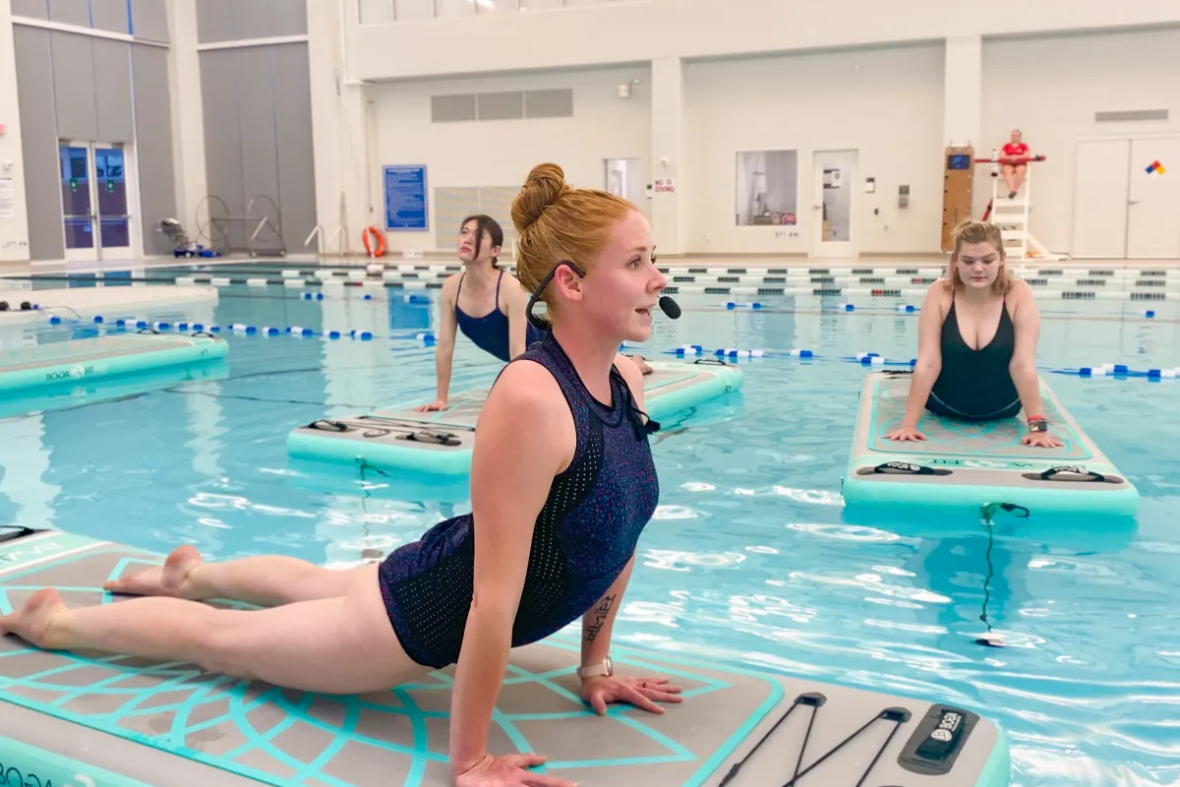

Safety & Security
We are dedicated to ensuring a safe and secure learning and living environment for your student. Through close collaboration between our on-campus Police Department, Emergency Management, University Communications, Housing & Residence Life, the Student Health Center, and other essential resources, we work together to support your Niner as they make Charlotte their home away from home.
Our police officers are fully certified by the State of North Carolina and have completed extensive training. They possess full police powers on campus and are on duty 24/7—patrolling by car, bicycle, and on foot to ensure a safe environment for everyone.
Our network of approximately 300 emergency blue light poles ensures that students can quickly reach Police & Public Safety while on campus. Pressing the emergency button immediately connects you with Police Telecommunicators, who will dispatch the necessary support to your location. These emergency phones can also be used to request safety escorts, report suspicious activity, or address any other concerns while on campus.
This free app connects students to vital safety resources directly through their mobile device. With just a tap, they can quickly call or text Police & Public Safety, access a list of emergency contacts, conduct virtual “safe-walks” with family, friends, or roommates, and much more.
The Charlotte Annual Security Report, required by federal law, provides detailed information on crime statistics, procedures for reporting suspicious or criminal activity, security measures, police authority, crime prevention strategies, and university policies on substance abuse, sexual offenses, workplace violence, and fire safety.
This committee develops an annual comprehensive plan to ensure the physical security of UNC Charlotte’s campus. In addition to creating the plan and monitoring progress, the committee advises the Chancellor on policy changes to enhance campus safety.
Expanded Safety Resources
COVID-19 Response
The health and well-being of our campus community are our top priorities. We make decisions based on facts and informed by public health experts. For University-related COVID-19 updates, visit ninernationcares.charlotte.edu.
Alcohol Policy
We recognize that alcohol abuse is a concern on college campuses today, and we understand your desire for your student to make informed decisions during their time at Charlotte. Students struggling with substance use are encouraged to connect with the Charlotte Recovery Program, which offers recovery-informed therapy, group recovery meetings, and comprehensive support throughout their journey.
Student Conduct
We encourage you and your student to review our primary codes of conduct: the UNC Charlotte Code of Student Academic Integrity and the UNC Charlotte Code of Student Responsibility. The University also has programs to prevent illegal drug use and alcohol abuse, along with a campus smoking policy. All Charlotte students are expected to be familiar with these codes and to conduct themselves according to the standards they establish.
The Noble Niner
Charlotte students are also expected to embody The Noble Niner code, which reflects our high standards of morals, principles, and integrity. By upholding these values, students contribute to the growing reputation of excellence at Charlotte.
